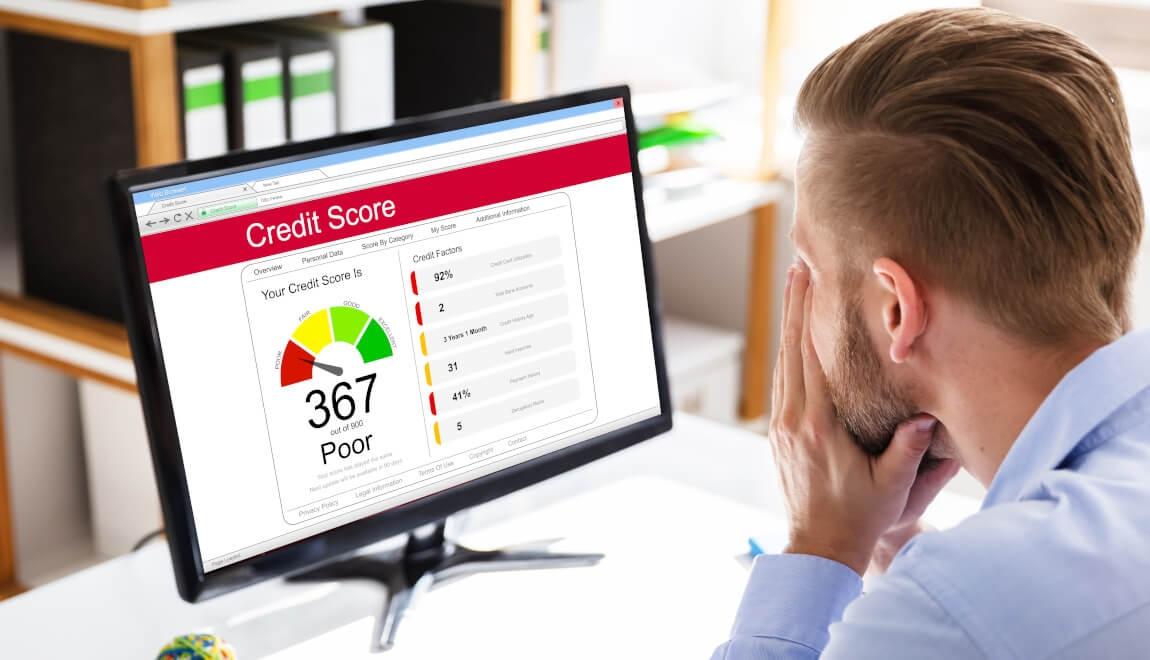An eviction is a stressful process that can negatively impact your rental history, and sometimes your credit. The taboo nature of evictions can muddy the waters and create a confusing environment to navigate. With a little perseverance, there are ways to find an apartment and start renting after an eviction.
Key Takeaways:
- Yes, you can rent after an eviction, but you’ll likely need to prove your reliability and have strong proof of income.
- Know what landlords will see. Many property managers run tenant screening reports, so assume your eviction will come up and plan how you’ll explain it.
- Use strategies that reduce landlord risk, such as providing a cosigner or guarantor, paying more upfront, or accepting month-to-month terms while you build trust.
- Fix what you can. Paying past-due balances, correcting report errors, and building consistent, on-time payments can improve your chances over time.
Can You Rent with an Eviction?
It is possible to rent with an eviction on your record, but it will be more challenging. The first step is understanding how and where evictions show up.
How Long Does an Eviction Stay on Your Record?
An eviction can remain visible for several years, often up to seven years, depending on what’s being checked. Most landlords run a tenant screening report, also known as a rental background check, before they approve you for a rental.
Can I Get an Eviction Removed from My Record?
Although it’s rare, there are a few ways to reduce the impact of an eviction on your record.
If you feel that you didn’t break the lease terms and were wrongly evicted, you can take your case to court. Unfortunately, this isn’t an easy process, and you’ll need to show a lot of proof that you were wrongfully evicted. You’ll also want to talk to a lawyer before proceeding with a wrongful eviction case.
If the court decides you were wrongfully evicted, you can ask the three major credit bureaus – Equifax, Experian, and TransUnion – to update or remove related information. You’ll have to send the credit bureaus the documentation that you won the case, and they may be able to correct inaccurate items tied to the eviction (like a judgment or collection).
Can My Landlord Remove an Eviction?
If you were evicted because you broke the terms of your lease, you can try to negotiate with your landlord to agree to a resolution that improves how the situation appears to future landlords. If you fix the situation, your landlord can contact tenant-screening companies or data providers to request an update. This is a lot of work on their end, so many landlords may not be willing to do this.
If you were evicted because you missed a rent payment, you can pay the amount you owe before the eviction is finalized. In some states, the landlord must accept payment and stop the eviction.
How Does an Eviction Impact My Credit Score?

Credit scores range from 300 to 850, and a good credit score starts at 700. Evictions themselves don’t always appear on your credit report, but unpaid rent that goes to collections, a judgment, or other debt can lower your score significantly. There are plenty of ways to help raise your credit score, so choose the strategies that fit your situation.
How to Improve Your Credit Score After an Eviction
You can rebuild your credit score by paying your bills on time and in full. Experian says that if you have a close friend or family member with high credit, you can become an authorized user on their credit card account. They don’t have to give you a credit card or tell you any of their information; just being on their account will help raise your credit score. You’ll also want to be conscious of your spending. Experian suggests spending less than 30 percent of your credit line to help raise your score.
6 Strategies for Renting After an Eviction
Because of the eviction, you’ll need to take a few extra steps to prove to your next landlord that you’ll be a reliable tenant.
Make sure you have good references
A reference from a boss or coworker can show that you’re reliable and have a steady job. If you’re involved in a community group, club, or volunteer program, someone from there works well, too. You could even have a friend or neighbor be a character witness. Make sure your references aren’t family members – they’re considered biased sources.
Be willing to make concessions
Your biggest challenge as a renter with an eviction is proving that you won’t repeat history. This means that you might have to make concessions. Whatever the issue was for the last eviction, be ready to show it won’t happen again.
If you missed a rent payment, offer to pay for several months upfront. If you didn’t register a pet on your lease, having a pet resume will show that you intend to be a responsible pet owner. If the eviction was from property damage, offer to pay a larger security deposit (where legal). You may also have to lease month-to-month for a while to build your landlord’s trust before signing a year-long lease.
Be honest
Ask your potential landlord if you can sit down with them to discuss your rental history and provide references. If they agree, treat it like you would an interview. Dress professionally, be polite, and put your best foot forward. Be honest about the eviction, but don’t give too much detail. Your prospective landlord doesn’t need to know personal information. You’ll also want to avoid saying anything negative about your past landlord.
Find a guarantor or cosigner
If your potential landlord is still hesitant about approving you, propose having a guarantor or cosigner. This is a good option if you have an eviction on your record, but it can be tricky. You'll have to ask someone to sign on with you, and they'll be held responsible if you miss a rent payment.
While a guarantor and cosigner have the same responsibility, they have a few subtle differences. The main difference is that a cosigner has the right to live on the rental property while a guarantor does not.
Generally, a cosigner can be anyone you know with good credit. While commercial cosigning services are available, your best bet is likely a family member or close friend. Your cosigner will also be financially responsible for your lease if you can’t pay your rent, so make sure you choose someone who’s willing and able to help.

Consider a roommate
Living with a roommate is a great way to rebuild your credit and rental history if you have an eviction. You can find a roommate online or choose a close friend or family member to live with.
Finding a roommate with a good credit score and a clean rental history to be the leaseholder is a great way to rebuild your rental history and credit score. Often, landlords will only run a tenant screening and credit check on the leaseholder since they are ultimately responsible for the rental. You will still have to sign the lease, but a credit check will be unnecessary if you’re not the leaseholder. If you need to be the leaseholder, still consider a roommate without an eviction because they can act as a cosigner.
Rent from a private landlord
If you have an eviction, consider renting through a private landlord. Corporate-owned rental communities aren’t as personal. In most cases, they’ll see an eviction and deny your application. A private landlord may be more willing to sit down for a rental interview and follow up with references.
If you’re searching on Apartments.com for properties for rent by a private owner, search the city where you want to live, navigate to “All Filters,” scroll down to “Show Only,” and select “Properties that are for rent by owner.”
You can also consult the Consumer Financial Protection Bureau to find a housing counselor who can help you find a rental. Some rental properties don’t require any credit or rental check, and some are more willing than others to rent to those with an eviction.
No matter the reason, getting evicted is a stressful experience for any renter. By taking responsibility, being honest, and working to fix the issue, you can leave the past behind and find your new perfect place.
Originally published on September 8, 2021 by Olivia O'Brien






